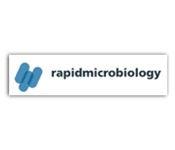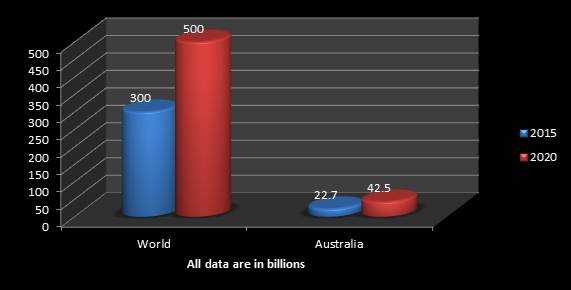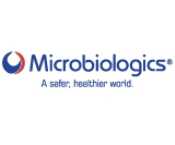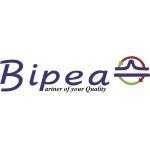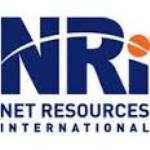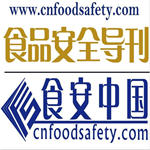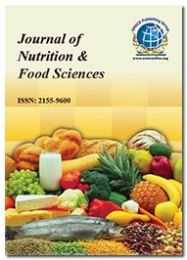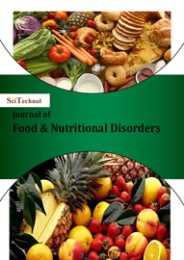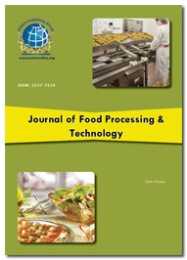Theme: Revolutionizing the Food Safety for a Safe and Secure Future
Food Safety-2015
Welcome Message from Dr. Árpád Ambrus

Prof. Dr. Árpád Ambrus
Scientific adviser
Dear Colleagues,
The provision of sufficient food supply is linked with food safety which is of major concern of regulatory agencies and the general population around the world. The International congress and Exhibition on Food Safety and Regulatory Measures covers uniquely wide scope of related topics including but not limited to:
- microbial and chemical contaminants of food derived from raw materials or evolved during processing or storage;
- residues of pesticides and veterinary drugs;
- new technologies to preserve food;
- adverse effect of food contact materials and environmental contaminants;
- decontamination technologies to reduce or remove toxic substituent's;
- dietary supplements, functional and novel food;
- food allergens;
- application of isotope techniques for improving traceability of food;
- techniques for continuous improvement of hygiene standard of manufacturing plants as part of HACCP;
- analytical methods for determining various hazardous materials in food;
- integrated control of food production from soil management to hygienic practice of supermarkets and restaurants;
- global perspective of international regulatory measures.
OMICS International is honored to invite the contributors from across the globe to its International Conference on Food Safety & Regulatory Measures (Food Safety-2015) to be held in Birmingham from August 17th to 19th, 2015.
Food Safety is a public health priority; millions of people fall ill every year and many die as a result of eating unsafe food. Serious outbreaks of foodborne disease have been documented on every continent in the past decade, and in many countries rates of illnesses are increasing significantly. Food Fraud is a global issue concerning the Food Regulation worldwide for the public health and safety perspective on moral and social grounds.
OMICS International conference series organizes 1000+ Global Events inclusive of 300+ Conferences, 500+ Workshops and 200+ Symposiums on various topics of Science & Technology across the globe with support from 1000 more scientific societies and Publishes 500+ Open Access journals which contains over 50000 eminent personalities, reputed scientists as editorial board members.
The food safety testing market is projected to reach $4.07 billion by 2018. Pathogens have been the leading cause of foodborne poisoning or illness. In 2012, pathogen testing dominated the food safety testing market in which salmonella testing accounted for the major share. Increasing food contamination and outbreak of Shiga toxin-producing E. coli (STEC) poisoning in Germany is expected to increase E. coli testing in the market. Germany dominated the market and is projected to be the fastest growing European food safety testing market followed by United Kingdom. In Europe, rapid technology market for contaminant testing has been increasing as they are less time consuming.
For the first time, the International Conference and Exhibition on Food Safety & Regulatory Measures will address new challenges and emerging issues in advances of Food Safety & Regulatory Measures.Food Safety -2015 aims to bring together leading Academic scientists, NGO professionals, Food Agronomists, Food Policy makers and regulators, Researchers and Research scholars to exchange and share their experiences and research results; about all aspects of Food Safety, Nutrition, Public Health and Economic regulations.
This is an open event; we welcome and invite you to participate in this prestigious conference to make this event as the best conference of Food Safety and Regulatory Measures
For more information, please click here
Track 1: Impact of Food and Water Security
The scientific and technological achievements that made possible the modern production-to-consumption food water security system capable of feeding nearly 7 billion people and it also discusses the promising potential of ongoing technological advancements to enhance the food supply even further and to increase the health and wellness of the growing global population
Track 2: Food Safety Regulatory Affairs
Food safety Regulatory Affairs is an interdisciplinary subject area integrating science, law and food/health policy as applied to the regulation of the entire food chain from pre-harvest to the consumer. International perspectives on Food Regulatory Affairs have become increasingly important, particularly since the formation of the World Trade Organization and the international acceptance of Codex Alimentarius standards with food security meetings and food safety global events
Track 3: Food Safety and Agronomics
The processing of food is designed to remove health hazards associated with microbial pathogens. Processing operations dealing with raw food materials or ingredients carrying pathogens have significant controls and regulations to detect and inactivate food-borne microorganisms that can cause illness
Track 4: Food Preservation, Quality Standard and Food Management Systems
Effective food control systems require policy and operational coordination at the national level. The development and implementation of an integrated national food control strategy; operation of a national food control programme; securing funds and allocating resources; setting standards and regulations; participation in international food control related activities; developing emergency response procedures; carrying out risk analysis; etc. Core responsibilities of food quality system include the establishment of regulatory measures, monitoring system performance, facilitating continuous improvement, and providing overall policy guidance
Food labeling provides information about the nutritional content inside a package of food. Food labels carry useful information to help you make good choices about food. The food label will tell you if the food contains an additive that you may want to avoid. The nutrition information panel helps you to compare the nutrient profile of similar products and choose the one that suits your needs.
Risk-benefit analysis is the comparison of the risk of a situation to its related benefits and comprises a constellation of methods, drawn from many disciplines, and addresses the question of whether a risk is acceptable. Foods can possess both health risks and benefits. Risk-benefit analysis of foods is the scientific comparison of risk and benefits for at specific food in a certain situation, making it possible to predict the health-related consequences for the consumer.
Track 7: Environmental Protection Co-Management with Food Safety
Co-management minimizes the risk offecal contamination and the resulting microbiological hazards associated with food production while simultaneously conserving soil, water, air, wildlife and other natural resources. The design and implementation of these audit programs can have profound impacts on field level management, and in turn impact the co-management of food safety and sustainability. Effectively co-managing food safety and conservation objectives is extremely challenging for the produce industry at all levels of the supply chain
Track 8: Public Health, Food Fraud and Consumer Perceptions
The national food law should ensure the regulatory and enforcement authority of government and clarify their interface with other partners. Regulations must address all aspects of the entire food system from production to consumption. The role and responsibility of public authorities in the development and implementation of an effective food safety system is dependent on adequate human resources and financial support and needs to be practical, efficient and cost-effective food fraud relation.
Track 9: Challenges to Food Hygiene and Safety
Food safety challenges differ by region, the responsibility for safe and nutritious food is shared by all players in the food system and the challenge is to build comprehensive food systems that ensure the long term involvement and commitment of all concerned parties.
Pest control is an important food safety measure in food businesses. A food safety and sustainability goal has become a vital element of produce industry management throughout the supply chain. Effective measures must be taken to exclude pests from the manufacturing, processing, packing and holding areas and to protect against the contamination of food on the premises by pests. The use of insecticides or rodenticides is permitted only under precautions and restrictions that will protect against the contamination of food, food-contact surfaces, and food-packaging materials
Track 11: Foodomics Approaches in Food Safety
Foodomics is the comprehensive, high-throughput approach to encompass the multiple analysis of contaminants, the establishment of more-powerful analytical methodologies to guarantee food origin and quality, the discovery of biomarkers to detect unsafe products or the capability to detect a food safety problems before they grow and affect more consumers, etc Besides the development of genomics, transcriptomics, proteomics, and metabolomics provides extraordinary opportunities to increase our understanding in regards to this huge variability addressed by Foodomics. Proteomics approaches have been also applied to assess food quality because protein profiling can give useful information on food composition, origin, or adulteration. Foodomics plays an important role for food traceability in which MS-based metabolomics and proteomics are applied
Track 12: Novel Foods, Processes and Nanomaterials
Novel foods are products foods that have been modified by genetic manipulation (also known as genetically modified foods, GM foods, genetically engineered foods or biotechnology-derived foods). Nanotechnology is increasingly being employed in the areas of food standards and packaging food scientists have adopted the concept of targeted drug delivery and are actively researching targeted nutrient delivery intervention strategies that could help people maintain their health. According to market analysts, the Nano food market is expected to rise from 7.0 billion US dollars today to 20.4 billion dollars in 2010
Conference Highlights
- Impact of Food and Water Security
- Food Safety Regulatory Affairs
- Food Safety and Agronomics
- Food Preservation, Quality Standard and Food Management Systems
- Food Labeling
- Risk-Benefit
- Environmental Protection Co-Management with Food Safety
- Public Health, Food Fraud and Consumer Perceptions
- Challenges to Food Hygiene and Safety
- Pest Management
- Foodomics Approaches in Food Safety
- Novel Foods, Processes and Nanomaterials
To share your views and research, please click here to register for the Conference.
To Collaborate Scientific Professionals around the World
| Conference Date | August 17-19, 2015 | ||
| Sponsors & Exhibitors |
|
||
| Speaker Opportunity Closed | Day 1 | Day 2 | Day 3 |
| Poster Opportunity Closed | Click Here to View | ||
Useful Links
Special Issues
All accepted abstracts will be published in respective Our International Journals.
- Journal Food Processing & Technology
- Journal of Nutrition & Food Sciences
- Journal of Food and Nutritional Disorders
Abstracts will be provided with Digital Object Identifier by





















